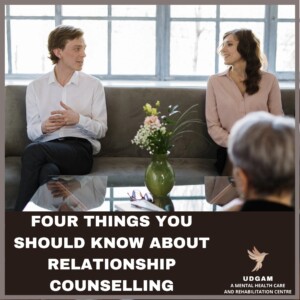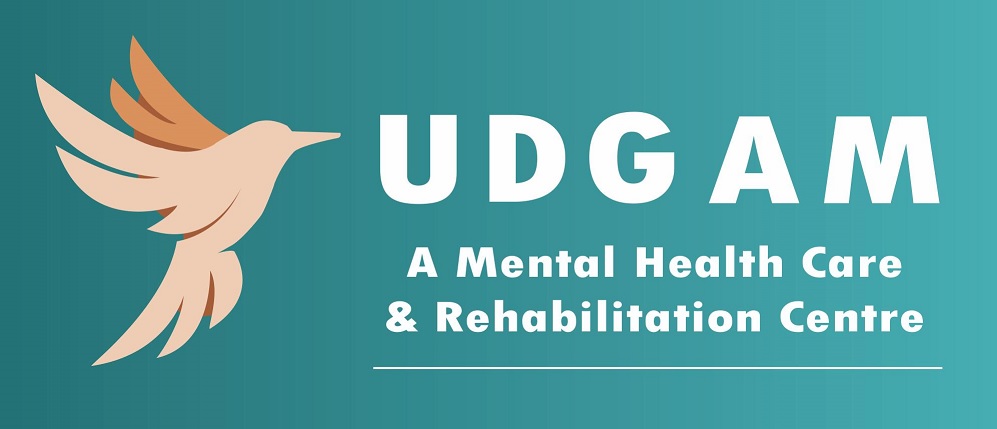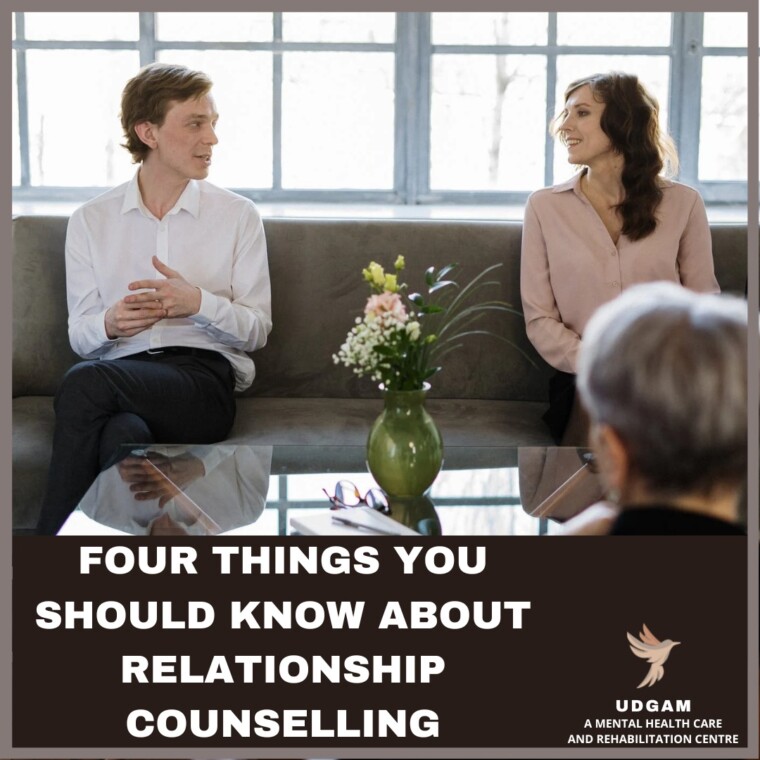Four Things You Should Know About Relationship Counselling
Relationship counselling is a part of a system of counselling methodologies. As the word suggests it focuses on describing, building, analysing, and reforming relations between people. There is no fixed number of people who could take a session together, but generally, two are preferred at a time. The sessions can be both online and in person, depending on the client’s preference. Either way, good collaborative bonding between counsellor and client is necessary.
1) Who can go for relationship counselling?
Anyone can go for relationship counselling, in more trendy terms, couples (Married/ unmarried) are seen availing of these services. Therefore, relationship counselling is also known as couples counselling.
Couples of all genders and sexuality can go for relationship counselling. The major factor to understand is the need for relationship counselling. It is easier these days to go for a virtual session, either because of the pandemic or for any other reasons, you do not wish to go to a clinic, you can opt for online counselling.
2) When should you go for relationship counselling?
So never has it been said that you or your partner are incapable of solving problems, the step of counselling comes in at a time when as a couple you both find it difficult to

- Open up to each other
- Assess your feelings
- Feel a lack of physical and emotional intimacy
- Unable to find any solutions to your problem
- Feeling distant from one another
- And more.
Advice is to start assessing your current situation in small pieces, find out what you are unhappy with and open up to your partner. This is an ideal situation, but in many cases, the gap comes in when one person has to communicate with another. There can be many reasons behind this gap but their consequences create a distance between people.
Another area that counselling deals with is the extreme situations, where domestic abuse is involved and as such many other precautions- especially legal- are taken.
Couples counselling is also seen as beneficial when one or more individuals are suffering from mental health issues. Usually, this couple's session can be educational or can help rebuild the relationship gap. What matters most here are the goals that you set up together.
The online counselling method also comes in handy for couples who don’t reside together, or in case the counsellor is not from your area. It also helps in keeping a tab of your tasks and cuts the commute time.
3) What happens in this type of counselling?
The idea behind this service is that as counsellors we want to empower you, to support you when you are trying to find solutions. We work as a support for your journey in the counselling session. We don’t give suggestions or ask you to follow a norm, we work with you and your partner in collaboration to find a pattern of interaction best suited to you. We ask for input from you and your partner, hear both sides, sometimes go for an individual session, and then plan and map the areas of distress.
Once a basic idea has been developed over the areas that need work, certain plans of action and tasks are made to achieve that. The couple is required to carry out the tasks and report their findings. It is like mini research for you and your partner. But doing the scheduled tasks diligently is the key to success.
Mrs M and Mr H have been married for the last 10 years. They married very young, and are now in their 30’s. The initial accusation towards the husband was that ‘he worked for long hours and did not spend any time with Mrs M’. and as such, she feels lonely, disconnected, unloved, and eventually thought that the husband is cheating on her. After multiple sessions, it was seen that the husband himself is unhappy with his job and therefore chooses to drink late at night. An individual session with Mr H, helped him recognize the need to have a work-life balance. And an individual session with Mrs M helped her find a productive outlook and vent out her feelings. The relationship counselling began with setting goals for the couple (increase intimacy, open communication, de-stressing, spending time together). The counsellor started with small steps to increase the couple’s communication and moved on to bigger goals like work-life balance and increased intimacy. Following 10 sessions, the couple saw significant changes in their life.
It may sound very fictional at first, but the couple owes all the pleasant changes to their hard work and dedication.
4) What do you need to know before you begin counselling sessions?
Rules and ethical standards that a therapist has; are made to protect the client. And as such we advise you to remember or ask your therapist about them. These small pointers may help you understand the virtue of a counselling session.
- Your entire conversation is kept confidential (with few exceptions).
- Before beginning with anything, the couple’s consent is very important.
- There is constant assurance on the aspects of justice, fidelity, and responsibility towards the client.
- A basic brief about the flow of the session is given at the beginning.
- You can ask the therapist to stop at any moment you feel uncomfortable or overwhelmed.
- This particular therapy focuses on a couple as a unit, but you can ask for individual sessions as well.
- In online sessions, no external recording procedures are present, without consent.
- You will be asked to adhere to certain schedules, based on your goals and tasks assigned to you.
Such pointers can help you choose a therapist for yourself. These are followed in both online counselling sessions as well as in-person sessions. If you wish for more clarification on any of these points or you have doubts, speak to your therapist freely. Remember that in the end the benefit is yours and your partners and therefore you have the full right to find a therapist you are comfortable with. To learn more about relationship counselling or to book an appointment stay tuned to our website.
Anuja Sathe
Counselling Psychologist




